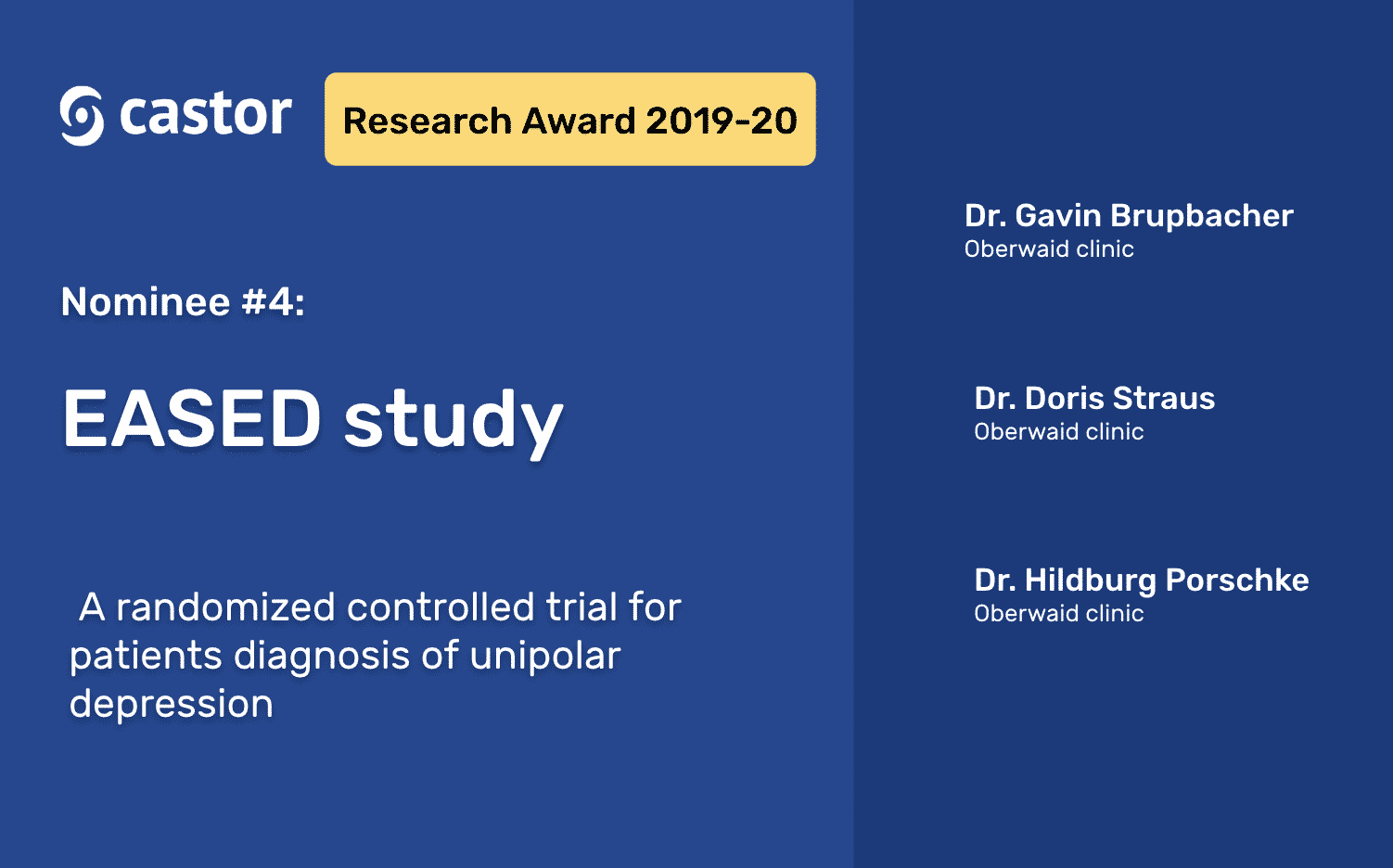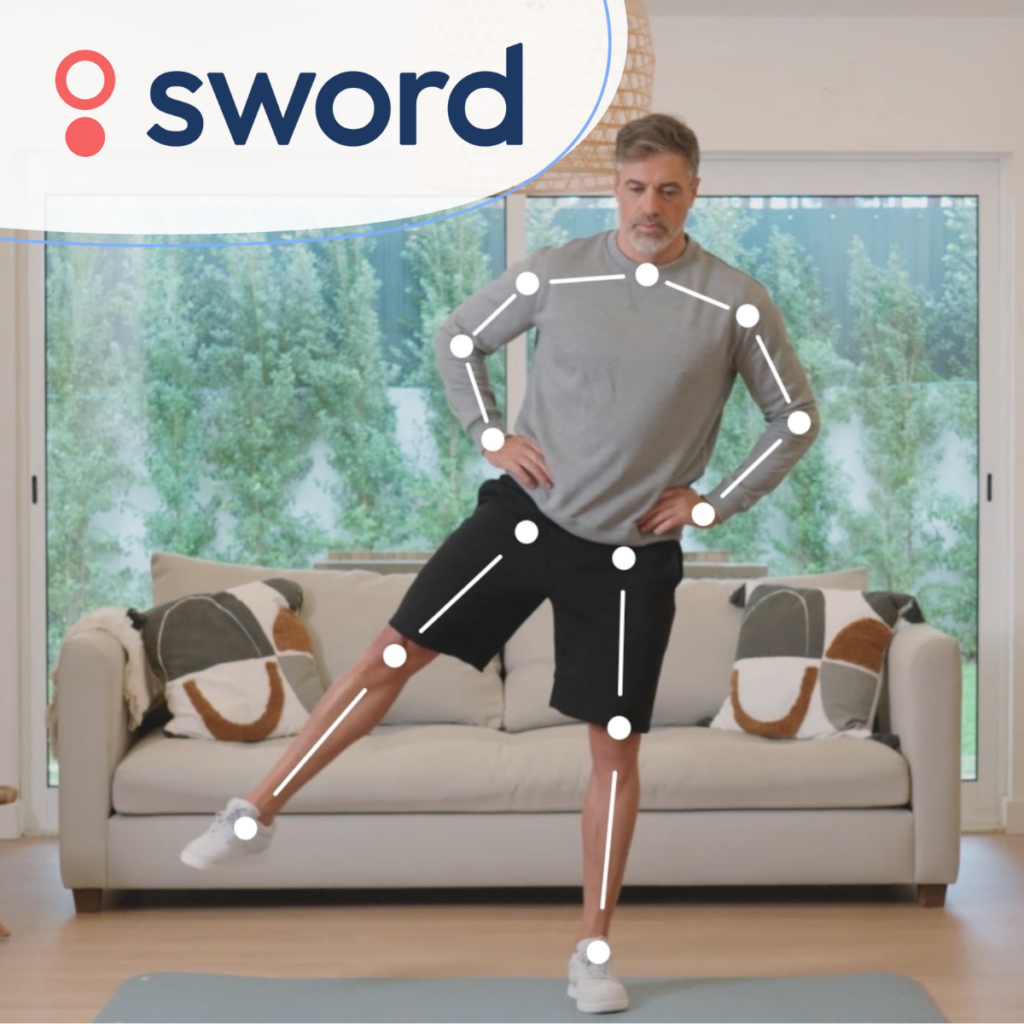The EASED trial studies sleep efficiency and how it is affected by aerobic exercise in patients diagnosed with unipolar depression. Castor Research Award nominee #4 recognizes the work of the Oberwaid clinic.

Research Overview
Unipolar depression is one of the most important mental disorders. Insomnia is a symptom of cardinal importance in depression. Insomnia increases the risk of developing depression, negatively affects disease trajectory, is the most common symptom after remission increases the risk of relapse, and is associated with higher suicide rates. Existing therapies for insomnia in depression have limitations, so further adjuvant therapies are needed. Acute aerobic exercise has been shown to have beneficial effects on sleep in healthy individuals and patients with insomnia. We hypothesize that a single session of aerobic exercise has a positive impact on sleep in patients with unipolar depression. The EASED study (Effects of Aerobic Exercise on Sleep in patients with Depression) aims to investigate the effects of a single bout of aerobic exercise on sleep in patients with depression.
About the team
Drs. Doris Straus and Hildburg Porschke are the chief physicians in the Oberwaid clinic and the chief trial physicians. Both are experienced psychiatrists specializing in psychosomatic disorders. The team includes Professors Markus Gerber, Roland von Känel, and Arno Schmidt-Trucksäss, with respective areas of expertise in psychosocial health, exercise science, and psychosomatic medicine. Dr. Thea Zander is a post-doc specialized in sleep research and decision making. She is the second blinded scorer of the polysomnographic recordings.
The author of the submission, Dr. Gavin Brupbacher began work quality management and research at the Oberwaid clinic in 2016 after completing an MSc Exercise & Health Science. The Oberwaid clinic developed the program combining exercise, health science with psychology knowledge called EASED (Effects of Aerobic exercise on Sleep in patients with Depression). After writing the study protocol and obtaining the ethics approval, Dr. Brupbacher coordinates the trial, recruits patients, supervises the study nurses, and scores the polysomnographic measurements.
Professors Markus Gerber, Roland von Känel, and Arno Schmidt-Trucksäss are supervisors of my Ph.D. project. Their respective areas of expertise are psychosocial health, exercise science, and psychosomatic medicine. Dr. Thea Zander is a post-doc specialized in sleep research and decision making. She is the second blinded scorer of the polysomnographic recordings.
Study design and methodology
The EASED trial is a two-arm parallel-group, randomized, outcome assessor-blinded, controlled, superiority trial. Patients between 18 and 65 years of age with a primary diagnosis of unipolar depression (without a psychotic episode) are included. Exclusion criteria are regular use of hypnotic agents, opioids, and certain beta-blockers, as well as the presence of factors precluding exercise, history of epilepsy, restless legs syndrome, moderate obstructive sleep apnea and a BMI >40. The intervention is a single bout of aerobic exercise, performed for 30 minutes on a bicycle ergometer at 80% individual anaerobic threshold. The control group sits and reads for 30 minutes. According to the sample size calculation, a total of 92 patients will be randomized using minimization.
Research outcome
- The EASED study primary outcome is sleep efficiency as measured by polysomnography
- The EASED study secondary outcomes include further polysomnographic variables, subjective pre-sleep arousal, nocturnal cardiovascular autonomic modulation, subjective sleep quality, daytime sleepiness, and adverse events.
How Oberwaid clinic uses Castor
The EASED trial uses Castor EDC to capture, sort, and store study data. Castor provides ample support material such as the Castor calculation field helper and a great and friendly support-team which facilitates the study building process. Patient-reported outcomes are also being used through the Castor survey module. The ability to export data and then provide patients direct feedback on their results is something greatly appreciated as the team indicated that it is an important aspect of patient recruitment.
Upon trial completion, EASED will continue using the platform for data storage to comply with the required regulations and to optimize the data-lifecycle, as Castor is compliant with ISO 27001, GDPR and GCP.
Stay tuned on the Castor EDC blog for more 2019-2020 Castor Research Awards nominations. We wish the nominees good luck and smart science—and encourage all researchers to share their projects for the chance to win €3000!



